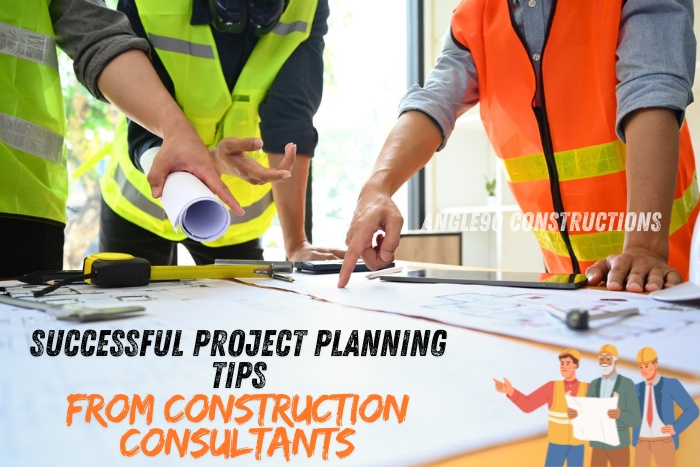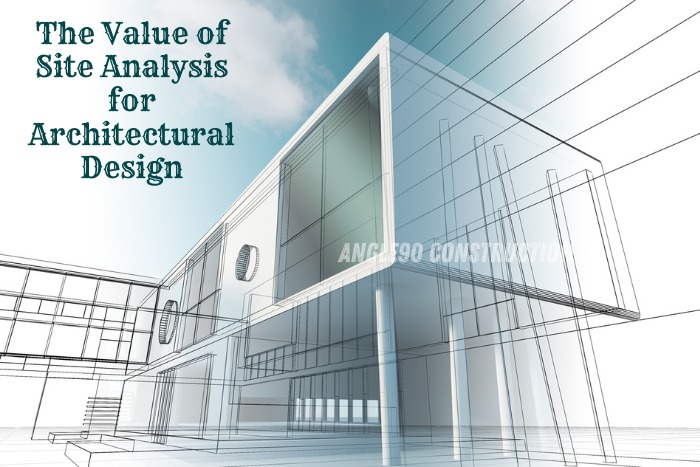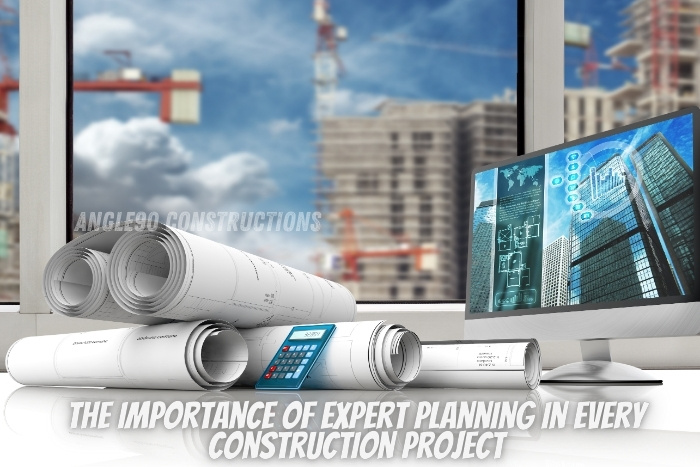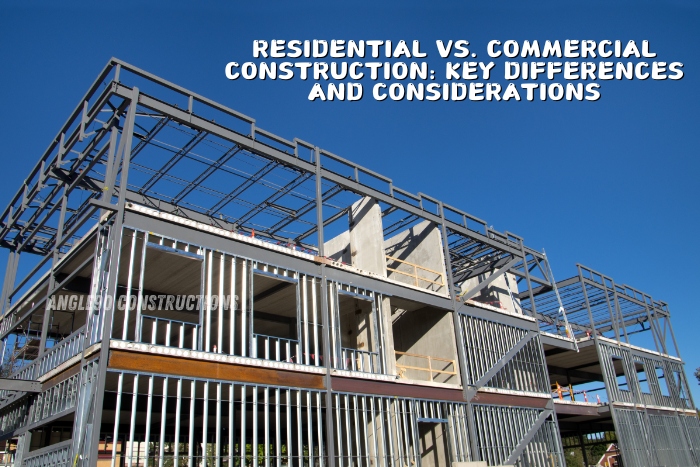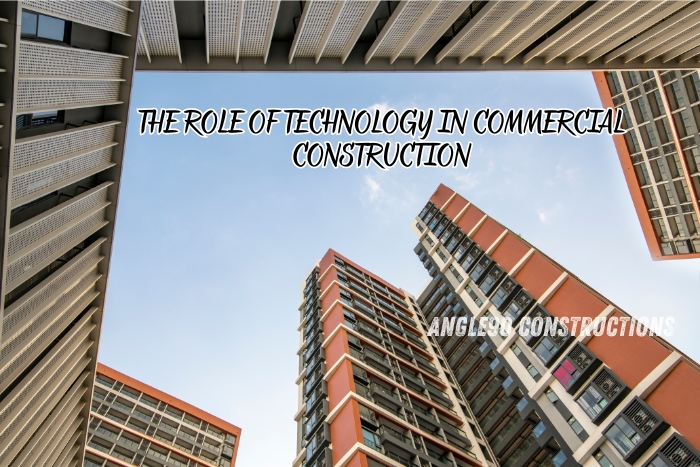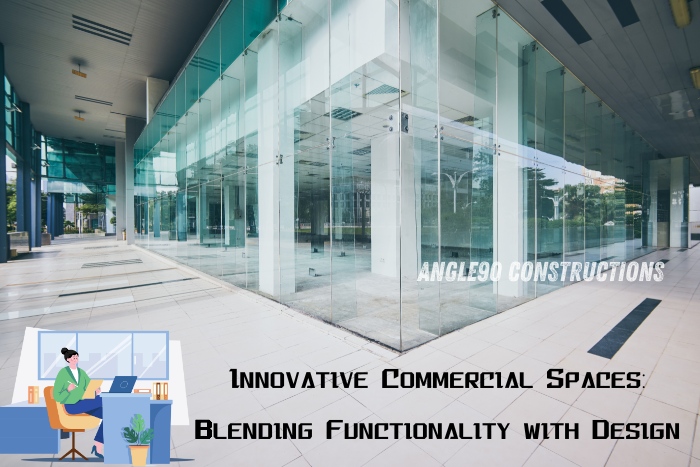Introduction
In the dynamic world of construction, the success of any project lies in effective planning. At Angle90 Constructions in Coimbatore, our seasoned consultants have honed their skills to ensure that every project from residential builds to commercial developments is completed on time, within budget, and to the highest standards. This comprehensive guide provides expert tips and strategies for successful project planning that can be applied to any construction venture.
The Importance of Effective Project Planning
Building a Solid Foundation
Effective project planning is akin to laying a solid foundation for a building. Just as a sturdy foundation supports a structure, thorough planning underpins the success of a construction project. It helps manage resources, anticipate risks, and ensure smooth execution, which are crucial for meeting project goals and client expectations.
Streamlining Operations
Good planning streamlines operations, reduces waste, and maximizes efficiency. It sets clear objectives and timelines which coordinate the efforts of all stakeholders, from architects and engineers to subcontractors and suppliers.
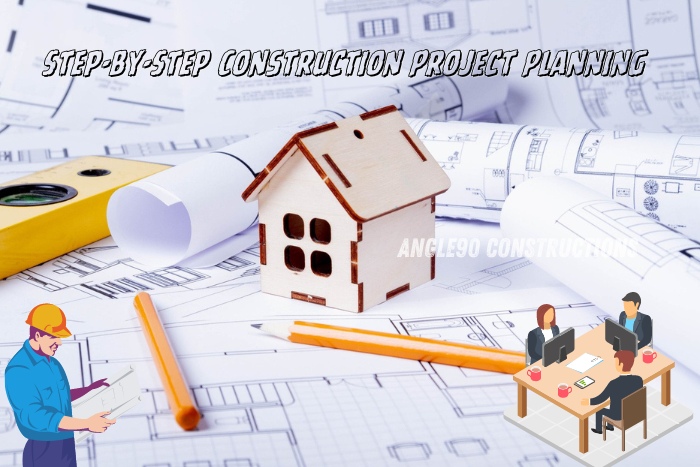
Step-by-Step Construction Project Planning
Define Your Objectives
The first step in project planning is defining your objectives clearly. What are you trying to achieve? Whether it’s constructing a new office building, renovating a historic home, or developing a residential complex, having clear, measurable objectives sets the tone for the entire project.
Develop a Comprehensive Project Plan
A comprehensive project plan covers all aspects of the construction process. This includes project scope, timelines, budget, resource allocation, legal requirements, and risk management. Utilizing project management tools and software can help keep this plan organized and accessible to all team members.
Budgeting and Resource Allocation
Accurate Cost Estimation
Accurate cost estimation prevents budget overruns and ensures the project is financially viable. It involves detailed analysis of all potential expenses from materials to labor. Always include a contingency fund to manage unexpected costs effectively.
Efficient Resource Allocation
Efficient resource allocation ensures that the right resources are available at the right time and in the right quantities. This includes materials, labor, and equipment. Scheduling software can be invaluable here, helping to manage timelines and prevent bottlenecks.
Risk Management in Construction Planning
Identifying Potential Risks
Risk management starts with identifying potential risks that could impact the project. These might include financial risks, safety hazards, environmental factors, or regulatory changes. Each risk should be assessed for its potential impact and likelihood.
Developing Mitigation Strategies
Once risks are identified, develop strategies to mitigate them. This might involve safety training for workers, securing insurance, or establishing flexible contract terms with suppliers and subcontractors to accommodate changes.
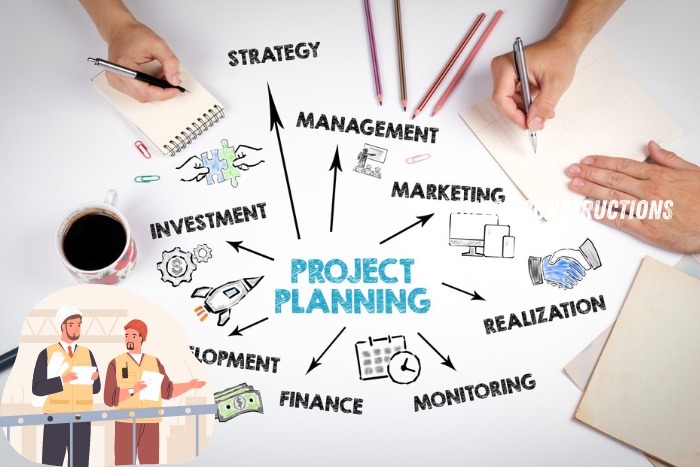
Utilizing Technology in Project Planning
Project Management Software
Project management software is a game-changer in construction planning. Tools like MS Project or more construction-specific platforms like Procore and Bluebeam can enhance communication, document management, and timeline tracking.
Building Information Modeling (BIM)
BIM technology allows for the creation of digital representations of physical and functional characteristics of places. It helps in visualizing the project in a simulated environment, offering insights into potential issues before they occur on the actual site.
Communication and Documentation
Keeping Stakeholders Informed
Effective communication is crucial for the success of any construction project. Regular updates and meetings ensure that everyone is on the same page and can address issues promptly.
Meticulous Documentation
Meticulous documentation keeps a written record of every aspect of the project. This includes contracts, plans, compliance documents, and revisions. Good documentation can help resolve disputes and provides a clear guide for future maintenance or renovations.
Continuous Monitoring and Evaluation
Regular Progress Reviews
Regular progress reviews help keep the project on track. These should assess whether the project meets the planned timelines, budget, and quality standards, and should involve inspecting construction quality and financial audits.
Feedback Mechanisms
Implementing feedback mechanisms allows for continual improvement. Feedback from all stakeholders, especially clients, can provide valuable insights into what is working well and what needs adjustment.

Conclusion
Effective project planning is the backbone of successful construction management. At Angle90 Constructions, we pride ourselves on our meticulous planning processes that ensure each project’s success from the ground up. By adhering to these expert tips from our seasoned consultants, you can anticipate a smoother construction process with fewer surprises, ensuring your project not only meets but exceeds expectations.


